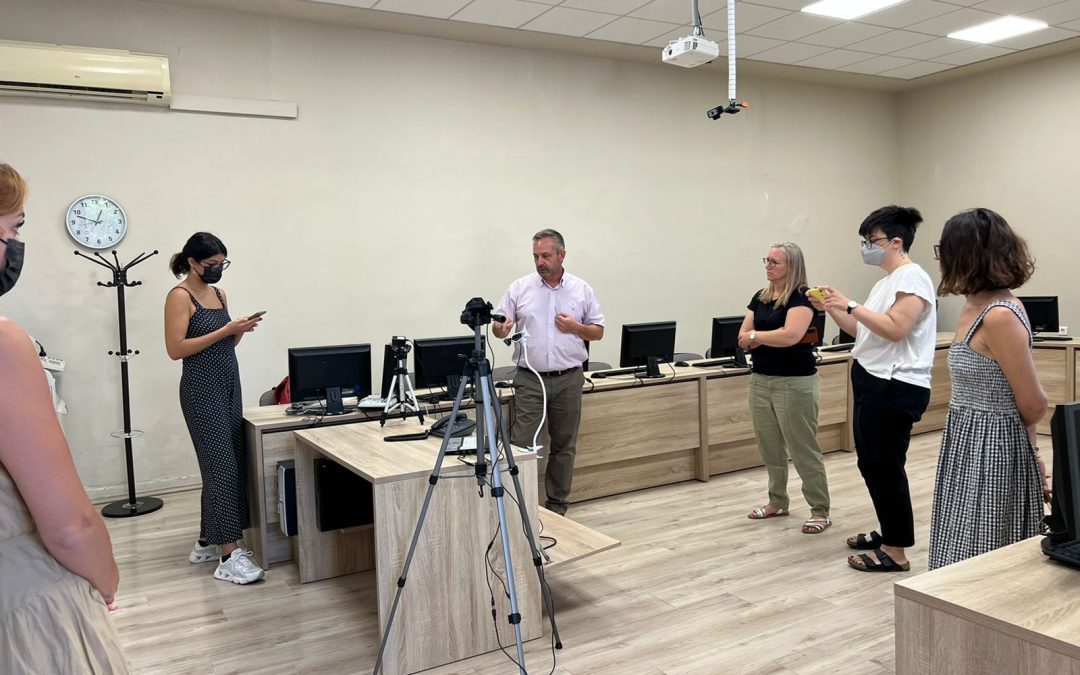In the wake of the digital revolution and the transformative impact of the COVID-19 pandemic, the field of adult education and vocational training (VET) has been compelled to reassess its traditional methodologies. One of the key challenges has been adapting to distance learning, especially when it comes to imparting practical skills. This article explores the current state of knowledge among adult educators and VET trainers in embracing distant learning methods for the acquisition of hands-on, practical skills.
The Current Landscape
The shift towards distance learning for practical skills has accelerated in recent years, driven by advancements in technology and the need for flexible, accessible education. However, this transition has posed challenges for educators and trainers accustomed to traditional, hands-on teaching methods.
Adult educators and VET trainers are increasingly recognizing the importance of digital literacy in their practice. The ability to seamlessly integrate technology into lesson plans and leverage online platforms for practical skill demonstrations has become a critical skill.
There is a growing awareness among educators about the potential of virtual labs and simulations to replicate real-world scenarios. These tools allow learners to practice practical skills in a controlled online environment, providing a bridge between theory and application.
Traditional assessment methods, such as in-person evaluations and practical examinations, are being reimagined in the context of distance learning. Educators are exploring innovative ways to assess and validate practical skills, including the use of video submissions, online quizzes, and virtual presentations.
Challenges Faced by Educators and VET Trainers
Many educators face challenges related to the accessibility and proficiency of technology. Overcoming these barriers requires ongoing professional development and support to ensure educators are equipped with the necessary skills to navigate digital platforms effectively.
Practical skills often require hands-on experiences, making it challenging to maintain learner engagement in a virtual environment. Educators are exploring creative methods, such as interactive simulations and virtual group projects, to keep learners actively involved in the learning process.
Educators and VET trainers are grappling with the task of ensuring that virtual learning experiences authentically mirror real-world scenarios. This involves not only selecting appropriate digital tools but also providing guidance on how to translate theoretical knowledge into practical skills.
Despite the challenges, there is a palpable sense of optimism among adult educators and VET trainers regarding the potential of distant learning for practical skills. The key lies in ongoing professional development, collaboration, and the continual exploration of innovative technologies and methodologies.
Institutions and organizations are increasingly offering professional development opportunities for educators to enhance their digital skills and embrace new pedagogical approaches. Workshops, webinars, and collaborative forums facilitate knowledge exchange and skill development.
Collaborative initiatives among educators, industry professionals, and technology experts are fostering the creation of high-quality virtual learning experiences. These partnerships help bridge the gap between theory and practice, ensuring that learners gain relevant, industry-ready skills.
The current knowledge of adult educators and VET trainers in distant learning for practical skills is in a state of evolution. While challenges persist, the commitment to adaptability and innovation is evident. As the educational landscape continues to transform, it is essential for educators to embrace change, leverage technological advancements, and collaborate to create a learning environment that effectively equips learners with the practical skills needed for success in their respective fields.
